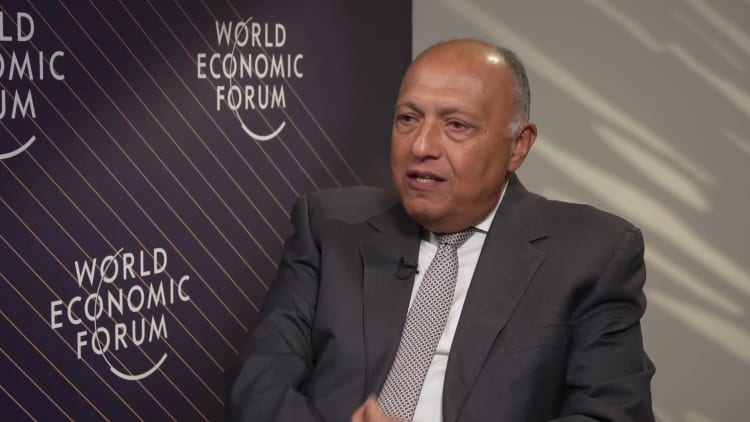First came containers full of equipment for a remote, renovated property on the edge of the forest. It had housed a riding academy and a café, but was converted for a mysterious business.
Then muscular young men appeared, jogging through the trees at odd hours and talking to each other in English.
Juozas Banevicius, who observed the goings-on in the tiny settlement of Antaviliai in Lithuania nearly 20 years ago, recalled finding it somewhat strange that the newcomers scared away anyone who came near the security fence they had erected around their property , which was previously open to the public.
“No one knew what they were doing inside,” Mr. Banevicius, 66, recalls.
The answer has been subject to intense media and judicial scrutiny in recent years. Everything points to the same conclusion: the village of Antaviliai was home to a secret CIA detention and torture center, one of three so-called black sites the agency set up in Eastern Europe after the Sept. 11, 2001, attacks.
In January, the European Court of Human Rights ruled that there was “undoubtedly” a secret prison codenamed Site Violet in Lithuania. Antaviliai, which is near the capital Vilnius, was not named, but the village is the only place in the country that Lithuanian officials have recognized as the site of a former CIA facility – although they insist it is not a prison acted.
Site Violet was mentioned in a 2014 Senate Intelligence Committee report following an investigation into the CIA’s use of waterboarding and other “enhanced interrogation techniques.” According to the report, the site operated from February 2005 to October 2006 and was then shut down due to unspecified “medical issues.”
The January court ruling concluded that Lithuania had violated the European Convention on Human Rights “because of its complicity in the CIA’s secret detainee program.”
Poland, which initially denied hosting a secret American prison called Site Blue, admitted after the Senate investigation that it had allowed the CIA to hold terror suspects on its territory. The then Polish President Aleksander Kwasniewski emphasized that he knew nothing about the harsh methods used by American interrogators.
By contrast, numerous trials and investigations in Lithuania have only reinforced the armor of official secrecy — and expressions of loyalty to the United States by a vulnerable Baltic country fearful of an increasingly aggressive Russia.
Kestutis Girnius, a historian at Vilnius University, said Lithuania’s well-documented complicity in CIA torture was “not something anyone here wants to talk about. “They buried the whole issue from the beginning and have continued to bury it.”
An important reason for this is the dependence of his country, a NATO member between Belarus and the heavily militarized Russian enclave of Kaliningrad, on the United States for security reasons. But he asked, “Do we really have to be so submissive? When America says “jump,” we just ask, “How high?”
Also angry is Egidijus Kuris, a Lithuanian judge at the European Court of Human Rights in Strasbourg, France. “The evidence that there was a prison is clear. The evidence that people were there is obvious. “Here you can’t pretend it’s not the case,” he said after a verdict against his country in 2018. “And yet we still ask: ‘Do you think there was a prison?'”
Part of the explanation for this, he suggested, was that no one in power wanted to deal with what happened to some of the millions of dollars that the CIA had provided to fund a secret prison in Lithuania and that the country’s parliament believed were not properly recorded. “Whoever pocketed the money in Lithuania needs to be identified,” Mr Kuris said.
In 2009, when ABC News identified Antaviliai as a former CIA black site, the Lithuanian parliament formed an investigative committee. It concluded that the country’s State Security Ministry (VSD) had received money for unspecified “joint operations” and that its accounting had been “inadequate.”
VSD denied this on the grounds that all funds were kept “strictly” and that “millions were not leaked anywhere”.
The parliamentary inquiry came to no conclusion regarding the existence of the secret prison. While flight data and other evidence suggested that detainees may have been secretly transferred to Lithuania, it could not be determined whether this had actually happened.
Lithuania came closest to admitting that the CIA operated a detention camp on its territory in 2009, when President Dalia Grybauskaite, who took office three years after the American withdrawal, said she had “indirect suspicions” about a secret prison.
If those suspicions are true, she said, “Lithuania needs to come clean, take responsibility and apologize.” It is also time, she added, for the United States to “provide answers.”
Her comments dismayed the U.S. Embassy in Lithuania, which had successfully worked for years to keep the issue out of the public eye. A cable later posted online by WikiLeaks said the president had “breathed new life into an unsubstantiated story, reflecting a lack of political flavor.”
“Rather than helping to calm a story that does not shed a positive light on Lithuania, her comments have instead suggested that there may be a grain of truth in the allegations,” the cable said.
Since then, officials have remained silent. Talking about Site Violet would raise questions about the missing money and provide material for propaganda to Russia, which delights in pointing out the sins of the United States while flaunting its own use of torture, as it did last month Published video footage showing Site Violet’s brutal treatment of suspects arrested in connection with the terrorist attack near Moscow last month.
In its January ruling, the European Court of Justice in Strasbourg ordered Lithuania to pay 100,000 euros, or about $108,000, to a Saudi national who judges said was being held in the Baltic country. The Lithuanian Justice Ministry said last week that it would comply with the order and was obliged to do so “regardless of whether it agrees with the court’s reasoning or not.”
The European Court of Justice told Lithuania in March that it had accepted a third case related to Site Violet. This was made by a suspected Qaeda terrorist, Abd al-Rahim al-Nashiri, now imprisoned in the US military prison at Guantánamo Bay, who claims he was held and tortured by the CIA in Lithuania for five months. He won previous cases against Poland and Romania for illegal detention in those countries.
The Justice Ministry said it plans to contest the new allegations and argue, as previously unsuccessfully, “that all evidence of the applicant’s detention in Lithuania is indirect and that the standards of proof should be different.”
The Violet site in Lithuania was closed in late 2006 after local security officials, not wanting to draw attention, refused to hospitalize a CIA detainee, Mustafa al-Hawsawi, who needed treatment for a medical emergency, they say in the Senate report.
After the CIA withdrew, the property – free of potentially nosy neighbors other than Mr. Banevicius and residents of a nearby retirement home – was taken over for a time by the Lithuanian security service and handed over by it to the state real estate authority. That agency announced in 2022 that it would put the property — a long, two-story office and living space with a large barn at the rear — up for auction.
It is located on property that has become valuable property. Once empty land across a dirt road from the site, it is now dotted with recently built homes for wealthy Lithuanians seeking country air and forest peace.
However, instead of selling the site for redevelopment, the real estate agency decided last year to hand it over to the Lithuanian Prison Service for use as a training center.
Windows have been built into the barn where former prisoners cited in European Court of Justice rulings say prisoners were shackled in the dark and subjected to sleep deprivation, beatings and waterboarding.
A flood of complaints from Poland and other host countries led the CIA to be forced by 2006 to close all but two of its eight black sites abroad – Site Violet and a second prison in an unnamed country, it said Senate report redacted locations. The total number of prisoners at that time was 28.
Mr. Banevicius, the neighbor who worked for the utility company at the time and saw how much water the former equestrian center used, said he never saw or heard evidence of prisoner mistreatment. But he always suspected there were more people in the building than the joggers and a handful of others he saw entering.
“They used a lot of water for so few people,” he remembers.
Tomas Dapkus contributed reporting from Vilnius, Lithuania.
Source link
2024-04-07 04:44:34
www.nytimes.com







